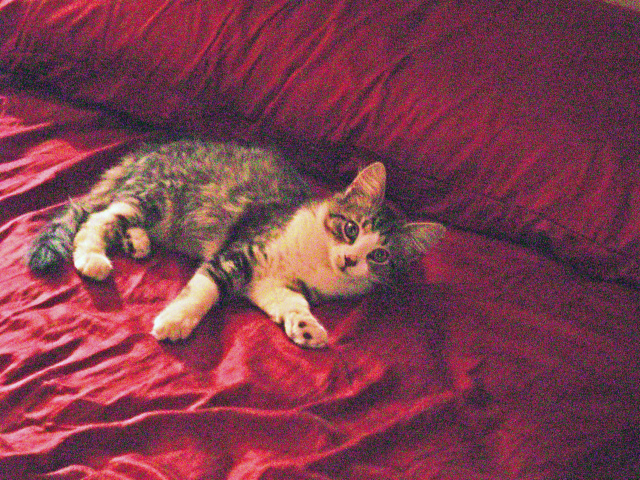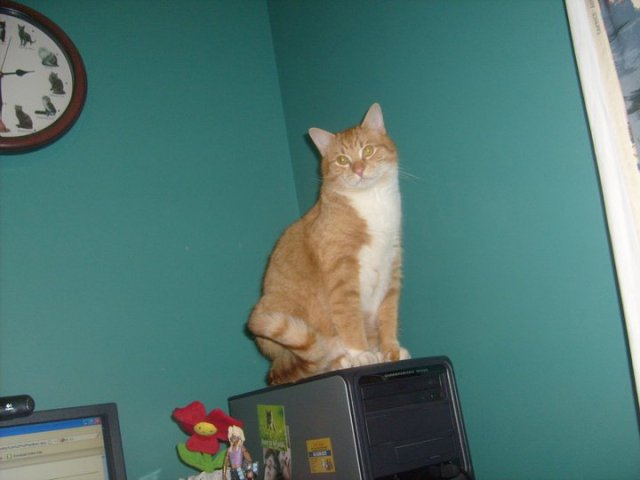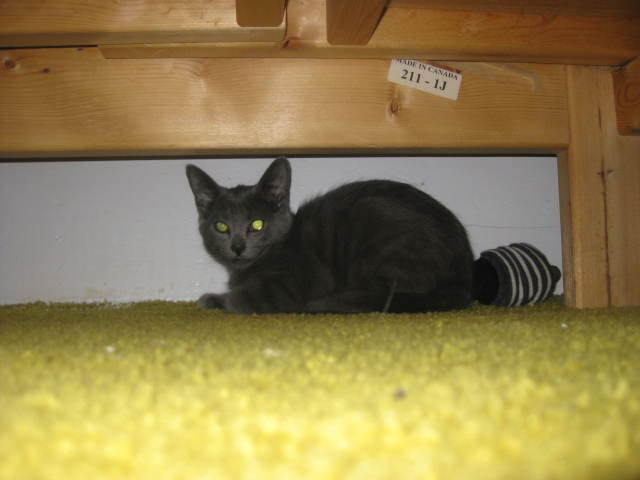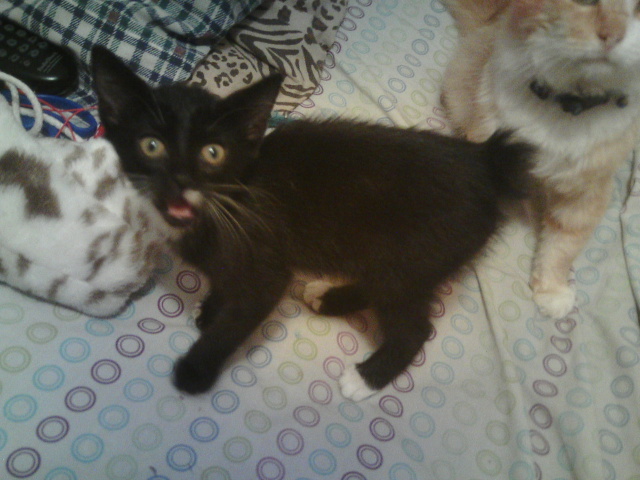QuestionI have an approx. 4 month old siamese kitten that appears to be in good health. Today, I picked him up and his stomach "bubbled" or gurgled. I didn't think much about it until he vomited a few hours later. The vomit was about the color of his cat food (yellowish-brown) and was in two clumps each about the size of a man's fist. It was amazing to see that come out of this kitten. In the past three days, I have noticed little clumps of vomit in the house, but having owned cats my whole life took it as part of the territory. The volume of the vomit tonight got my attention.
A few weeks back the kitten had a running/crusty nose and his breathing sounded muffled. I took him to the vet and he gave the kitten some Clavamox which seemed to clear that problem up. I have also noticed a clear, slimy discharge from the corner of the kitten's eyes. This is nothing new. His eyes are clear (not red) and it may not be anything more than regular "sleep" in his eyes.
The kitten is VERY playful and eats regularly. I don't really have an idea what brought his vomiting on. Would eating Eukanuba adult cat food cause this? I have an older siamese and I mix the adult's food with the kitten's Iam's kitten food. He has been eating this food combination for weeks. Could the kitten be eating too much?
Any advice would be appreciated, and I would be happy to answer any follow up questions you might have.
AnswerHi Shawn. Siamese are notorious for having sensitive bellies that result in regurgitation or vomiting. A large part of the problem is that many of them don't take the time to crush their food enough for the stomach to digest it. And they gobble. One of the best ways to help prevent this is to feed a food with kibble too large to be swallowed whole. Nutro Natural has pieces that are rather large and are football shaped, which encourages chewing. Also, Royal Canin actually makes a formula for Siamese cats with a similar shape to slow down swallowing and promote chewing. I'd encourage you to try one of these products. They are both excellent foods, in my opinion. You could also try feeding small, controlled portions several times a day to limit how much he eats at once.
But if this doesn't help, I'd see the vet. There are other reasons for vomiting and regurgitation including a faulty sphyncter in the esophagus, a condition called megaesophagus, where the muscles are weak and don't move food toward the stomach properly, a deformity of the esophagus, a growth pressing on the esophagus, Inflammatory Bowel Disease, a foreign body in the stomach, and parasitic infections to name a few.

 Additional info about the possbile norwegian
Question
Edmund at 4 months
I forgot to mention. Edmund
Additional info about the possbile norwegian
Question
Edmund at 4 months
I forgot to mention. Edmund
 Worried that my cat has a UTI??
Question
Oscar
Hello,
My name is Danielle and I have t
Worried that my cat has a UTI??
Question
Oscar
Hello,
My name is Danielle and I have t
 Identifying kittys breed
Question
Moggie
Hi I have a gorgeous ginger moggie I wa
Identifying kittys breed
Question
Moggie
Hi I have a gorgeous ginger moggie I wa
 Shaking? Or is it from her purr?
Question
Prada Under our bed
We just adopted a Himalaya
Shaking? Or is it from her purr?
Question
Prada Under our bed
We just adopted a Himalaya
 what breed is my bobtail kitten?
Question
Midnight
About a month ago I got a little bobt
what breed is my bobtail kitten?
Question
Midnight
About a month ago I got a little bobt